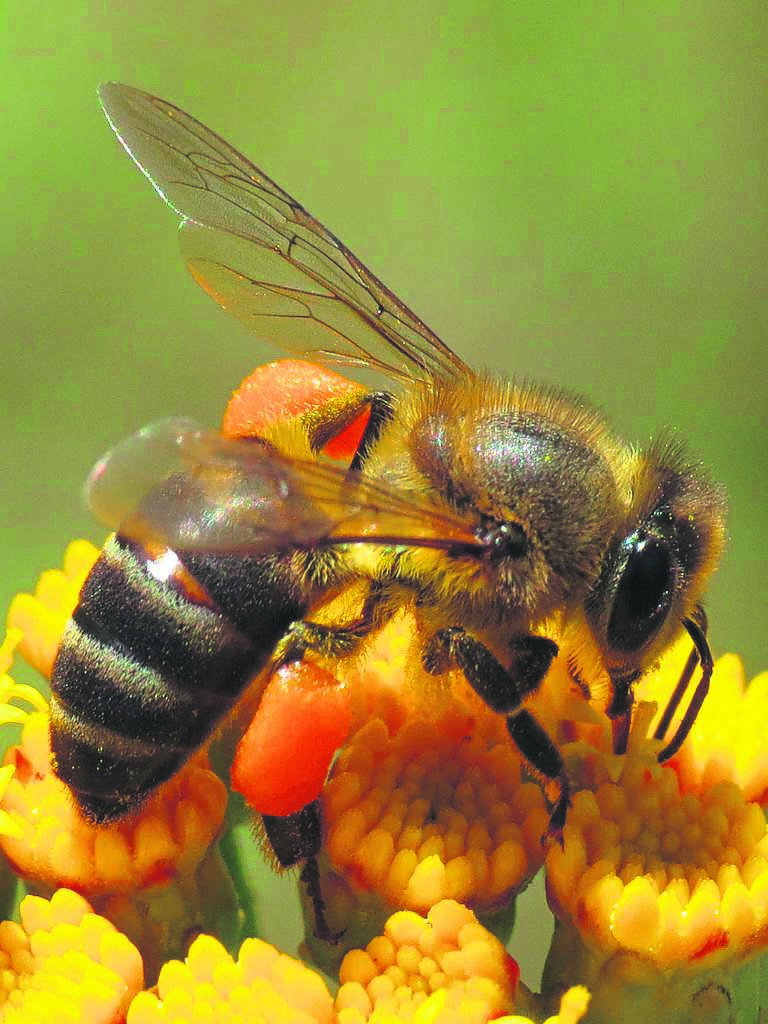
The Cape honeybee might have global celebrity status in the insect world, but there are many challenges to secure the future of this “famous bee variety” and sustain its contribution as an apex pollinator in the Western Cape.
This was one of the key messages at the recent Western Cape Bee Industry Association (WCBA) Honeybee Conference at Lourensford Estate, Somerset West.
The conference was attended by beekeepers, researchers, stakeholders, and the public. The main goals of the conference were to raise awareness of the plight of this unique creature and to discuss the challenges the beekeeping industry faces.
Apart from its role in biodiversity, the Cape honeybee is also a key economic player and has a pivotal role in pollinating about 50 vital food crops. Among them are pome and some stone fruit. Agricultural pollination contributes R30 to R40 billion rand nationally to sustain jobs and food security.
Threats
The Cape honeybee faces a critical lack of forage, exacerbated by the removal of eucalyptus trees, which provide more than a third of their food sources. This could compromise agricultural pollination in future.
Widespread vandalism and theft of beehives, compounded by mass importation of cheap honey, also threaten the local beekeeping industry.
Climate change has a substantial impact on pollinators and crop pollination, said Dr Ruan Veldtman, biodiversity expert from the South African National Biodiversity Institute and Stellenbosch University’s Department of Conservation Ecology and Entomology.
“The occurrence of extraordinary weather events such as windstorms, fire, flooding and drought, contribute to the loss of hives and foraging, therefore impacting the sustainability of beekeeping,” he said. “In recent years several alien wasp species are also threatening the survival of the Cape honeybee.”
Veldtman said according to DALRRD statistics there are roughly 1 700 beekeepers in the Western Cape with around 120 000 hives. “The lack of unity in the beekeeping industry makes planning and implementing changes to cope difficult. In future, beekeeping will become more challenging and problems more complex and context-dependent.”
He urged that scientific research be employed for solutions, regulations, and management strategies. Greater cooperation among beekeepers, farmers, researchers and the government is required to solve impending problems.
Veldtman said agriculture should adapt crop production and crop protection strategies and help manage pollinators, as there is a real risk that pollination demands will exceed supply.
“We must secure enough natural areas around farms, increase biodiversity with cover crops and flower strips, and adhere to spraying programmes to protect bees.”
Research
Hortgro Science is helping to secure sustainable pollination practices by funding several research projects. The Hortgro Science Entomology Team is currently working on a project that evaluates the pollination efficiency of managed honeybees in different cultivars of some stone and pome fruit in the Western Cape.
With new cultivars continuously entering the fruit industry their attractiveness to honeybees and the resulting pollination efficiency and fruit set are unknown.
This new Hortgro project aims to identify the attractiveness of different cultivars to honeybees by assessing the pollen and nectar reward offered by the blossoms. Honeybee-blossom visitation in different cultivars and the resulting fruit yield after pollination will also be assessed. This question will be answered in orchards with and without cover crops planted between the tree rows, to evaluate the potential of increased pollination efficiency and fruit set when orchard biodiversity is increased. The outcome of this project will be updated pollination guidelines for different stone and pome fruit cultivars.
Find an overview of current and future pollination research by Hortgro Science’s Dr Nanike Esterhuizen, and research student, Ansuli Theron can be found here.
Cape honeybee fast facts:
- Cape honeybees fly a distance equal to twice around the world to produce a standard 500 g jar of honey.
- The Western Cape ranks among the most diverse honey-producing regions in the world, reflecting its floral richness and Cape honey is praised for its special taste.
- A unique trait of the Cape honeybee is thelytokous parthenogenesis, which enables infertile worker bees to produce female offspring, including queens – a lifeline in times of adversity.
- Cape honeybee workers also exhibit remarkable versatility producing pheromones closely resembling those of the queen. This is a powerful tool of deception enabling Cape honeybees to invade colonies of other honeybee subspecies and overwhelm them.
- Cape honeybees can largely resist deadly pests and diseases such as the Varroa mite or American Foulbrood (AFB), which have devastated honeybee populations in other parts of the world. However, the spread of AFB by beekeepers reusing infected equipment still poses a threat.
- A so-called “beeline” separates the Cape honeybee from South Africa’s other indigenous honeybee sub-species, the African honeybee. This “line” roughly runs along the country’s geographic winter-summer rainfall divide.




 Publications
Publications
 Partners
Partners
























